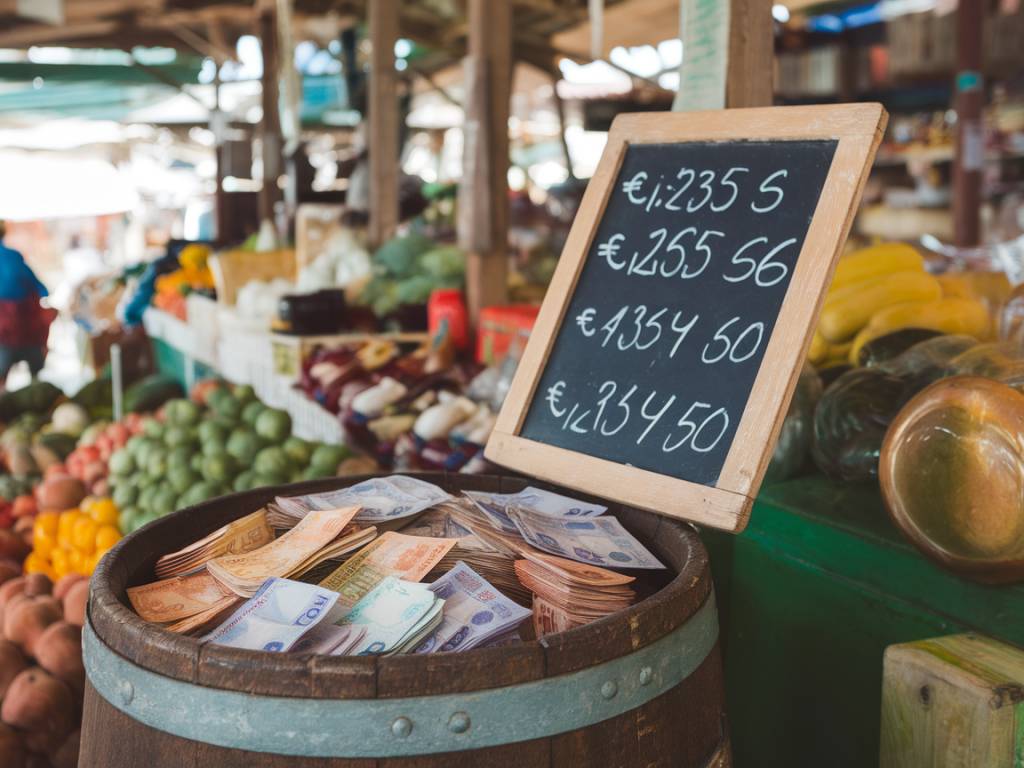In recent years, local currencies have emerged as a fascinating tool for bolstering local economies. These alternative monetary systems aim to complement national currencies by circulating money within specific communities, thereby promoting local businesses and encouraging economic stability. In this article, I’ll delve into how local currencies strengthen proximity economies, offering practical advice, concrete examples, and relevant case studies. By the end, you’ll have a clear understanding of how to leverage these currencies for local economic benefit.
The Concept of Local Currencies
A local currency is a type of money that can only be spent within a defined geographical area or community. Unlike national currencies, they are often issued by municipalities, non-profits, or community organizations rather than central banks. The core idea is to keep money circulating within the local area to fortify local businesses, instead of having it flow out to national or global chains.
Examples of local currencies include the Bristol Pound in the UK, the BerkShares in Massachusetts, and the Chiemgauer in Germany. Though small in scale, these currencies can significantly impact the local economy by fostering a stable, resilient economic environment.
Ways Local Currencies Boost Proximity Economies
Local currencies can invigorate proximity economies through various mechanisms. Here’s how:
- Encouraging Local Spending: By design, local currencies can only be used within a specific community, naturally encouraging residents to spend their money locally.
- Strengthening Community Ties: Local currencies often come with a sense of community pride, and using them fosters stronger relationships among local businesses and residents.
- Reducing Economic Leakage: Economic leakage occurs when money leaves the local economy to be spent elsewhere. By using a local currency, this leakage can be minimized, keeping more money within the community.
- Supporting Small Businesses: Small and medium enterprises (SMEs) benefit greatly as the restricted use of local currencies means that people are more likely to support small, local businesses over large multinational corporations.
- Promoting Economic Resilience: Having a local currency can serve as a buffer against economic downturns, providing a more stable and self-sufficient local market.
Case Studies: Successful Local Currencies
To better understand how these mechanisms work in practice, let’s look at three case studies:
The Bristol Pound (UK)
Launched in 2012, the Bristol Pound is one of the most famous local currencies. It’s designed to support independent businesses in Bristol. The currency is available both in paper notes and digitally, and over 800 businesses accept it.
One tangible effect of the Bristol Pound is its ability to foster a stronger local economy. A survey conducted in 2015 revealed that 45% of participating businesses noticed an increase in local trade. The scheme also strengthened social cohesion, as the community collectively embraced this local initiative.
BerkShares (Massachusetts)
BerkShares, introduced in 2006, circulate in the Berkshire region of Massachusetts. They have received international acclaim for their effectiveness in promoting local spending and community development. A distinguishing feature of BerkShares is their strong focus on local agriculture, arts, and small-scale manufacturing.
A study conducted by the BerkShares organization found that 67% of currency users felt a stronger connection to their community. Moreover, local businesses experienced a noticeable uptick in sales, particularly those in the food and agricultural sectors.
Chiemgauer (Germany)
The Chiemgauer, launched in 2003 in the Chiemgau region of Germany, aims to encourage sustainable economic practices. Unlike some local currencies, Chiemgauers depreciate over time to encourage rapid circulation and continuous local spending.
An analysis conducted by the University of Witten/Herdecke showed that every Chiemgauer spent circulated three times more quickly than an equivalent amount in Euros. This high velocity of money significantly boosted local economic activity, benefiting small businesses and local producers.
Practical Steps for Implementing a Local Currency
If you’re interested in introducing a local currency into your community, here are some practical steps to consider:
- Community Involvement: Engage local businesses, governmental bodies, and residents early in the planning stages. Their buy-in is crucial for a successful launch.
- Determine the Currency Model: Decide whether the currency will be physical, digital, or both. Each has its own set of advantages and challenges.
- Legal Considerations: Ensure that your local currency complies with national and local regulations. Consult legal experts if necessary.
- Develop a Redemption System: Work out mechanisms for businesses to exchange local currency back to the national currency, if necessary. This can help alleviate fears about liquidity.
- Marketing and Outreach: Increase awareness through marketing campaigns, educational workshops, and collaboration with local influencers. The more people know about your currency, the more likely they are to use it.
- Monitor and Adapt: Use surveys, economic data, and community feedback to make necessary adjustments. Continuous improvement is key to long-term success.
Recommendations for Maximizing the Impact of Local Currencies
Based on the case studies and practical advice, here are some actionable recommendations for maximizing the impact of local currencies on proximity economies:
- Engage Local Leaders: Involve community leaders to lend credibility and attract local business participation.
- Focus on Key Sectors: Identify sectors that can benefit the most, such as agriculture, arts, and small-scale manufacturing, and target them specifically.
- Create Financial Incentives:** Offer discounts or other financial incentives for using the local currency. For example, participating businesses might provide a small discount for customers paying with local money.
- Use Technology Wisely: Leverage digital platforms and mobile apps to make using local currency convenient and user-friendly.
- Build Community Buy-In: Organize community events and workshops to foster a sense of ownership and pride in the local currency.
- Monitor for Adjustments: Regularly collect data and feedback to adjust strategies as needed, ensuring the ongoing relevance and effectiveness of the currency.
Local currencies have immense potential to strengthen proximity economies by encouraging local spending, reducing economic leakage, and supporting small businesses. While the implementation may require dedicated effort and community involvement, the rewards are well worth it. With the practical advice and case studies shared here, communities can initiate and sustain local currencies to foster economic resilience and stronger community ties.

